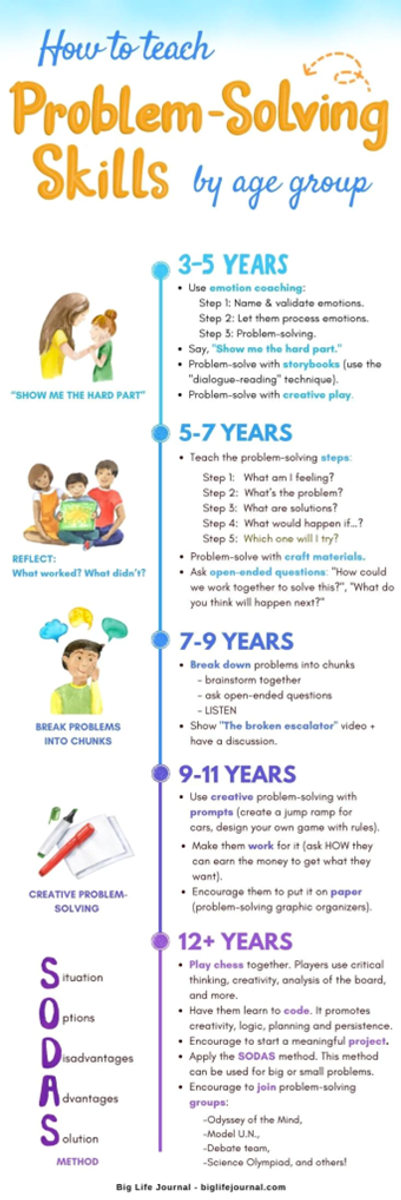Wellbeing & Culture

Problem Solving
This term, students will be focusing on Topic 4- Problem Solving, in Respectful Relationships lessons.
Children face problems and challenges on a daily basis and these can vary from toy-related conflict, a difficult maths problem or negative peer interactions. As parents and teachers, we can’t always be there to solve every problem for our children, and in many ways, doing this would be putting our children at a disadvantage. Problem-solving is identified by the World Health Organisation as a key skill for health. It is crucial that we TEACH our children how to solve problems by themselves. Problem-solving plays a vital role in children's cognitive development. It encourages creativity because it allows kids to view situations from different perspectives. Sometimes creative solutions are better than more obvious ones when addressing problems. To be able to solve problems, children need to be able to think critically and evaluate the consequences of various actions. Supporting children to develop these problem solving skills will enable them to become confident, independent and successful individuals.
In Respectful Relationships lessons, students will be supported to engage in a range of applied learning tasks, role plays and discussions to teach them the skills they need to be able to cope with challenges they may face in the future. See the graphic for some problem solving strategies.
Sources:
https://mrsmyersrr.com/news/importance-problem-solving-child-development
RR Teaching Guides
PRIME Energy Drinks
We are having an increasing number of students bringing PRIME energy drinks to school. Please see Bree Jennings' Assistant Principal page for important Health and Wellbeing advice about these drinks.
Kelly Gommers - on behalf of the Health and Wellbeing team

